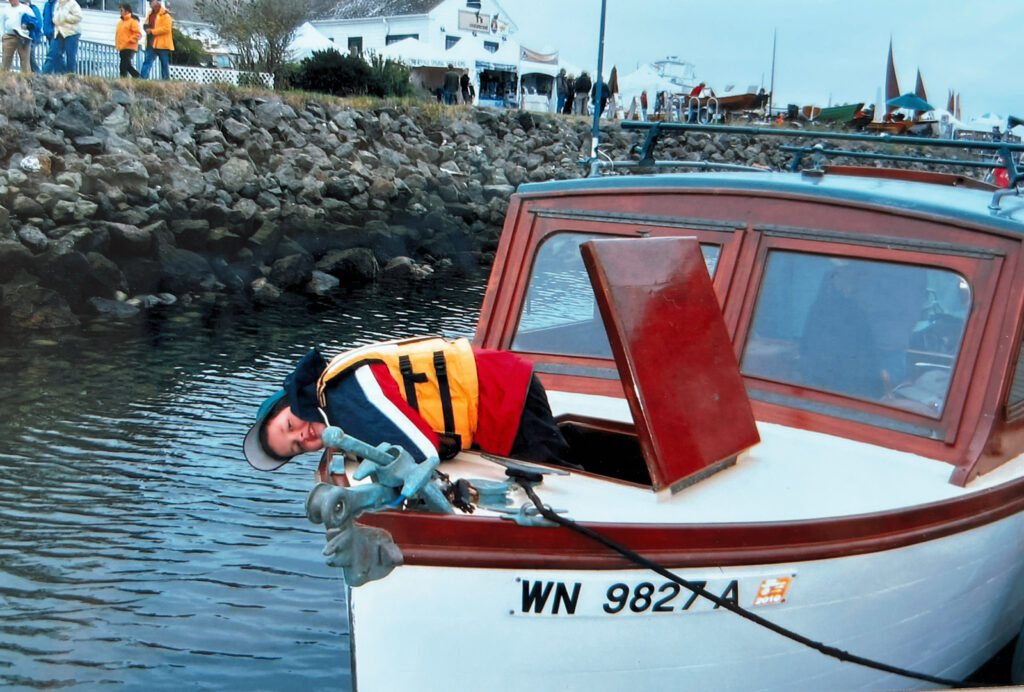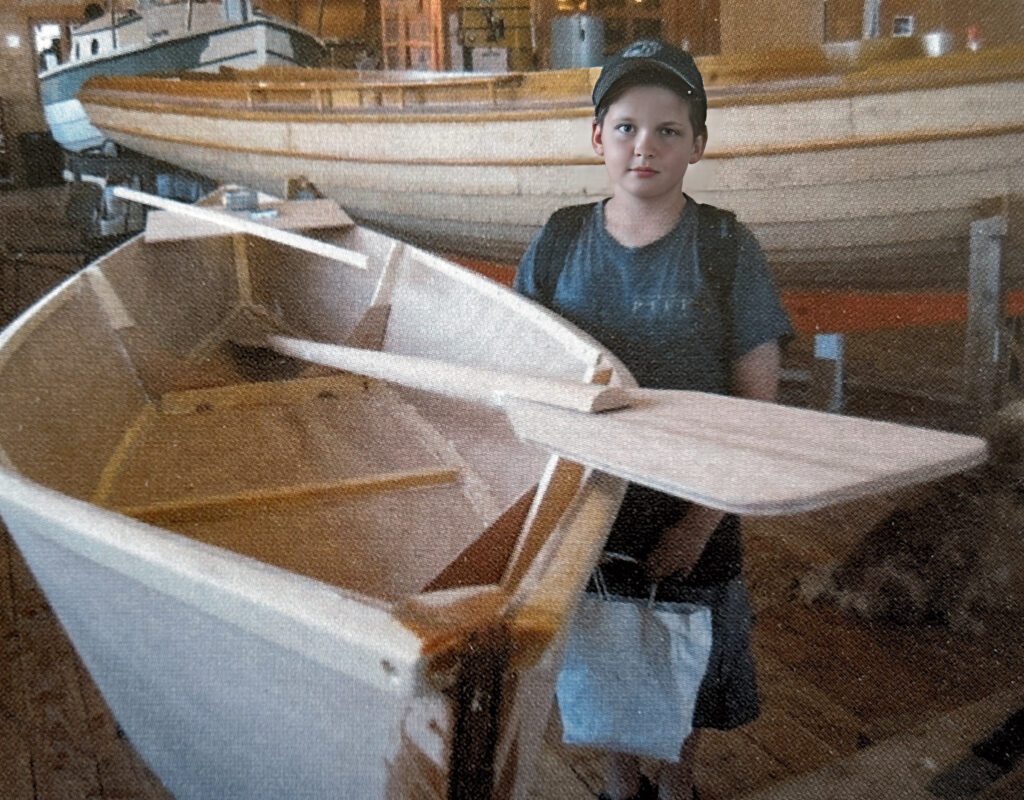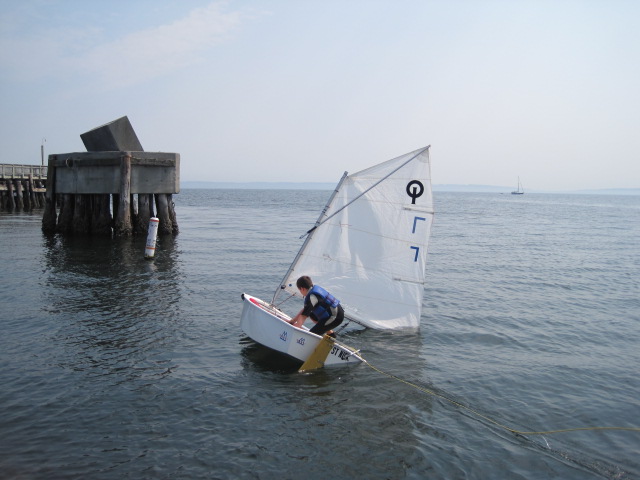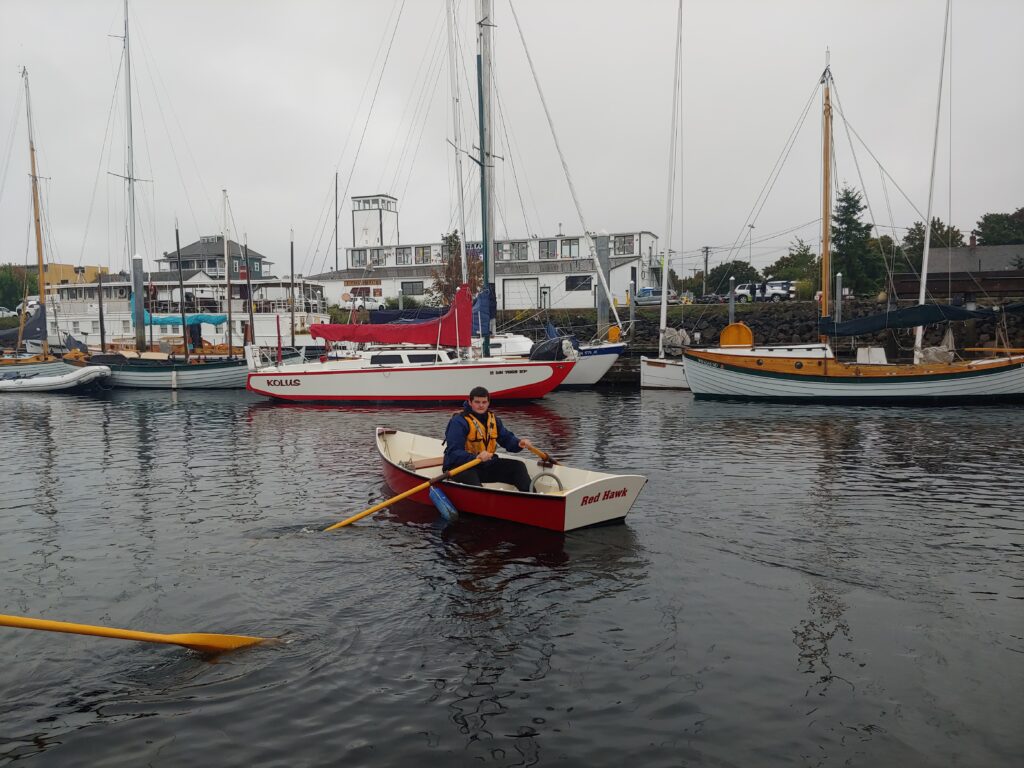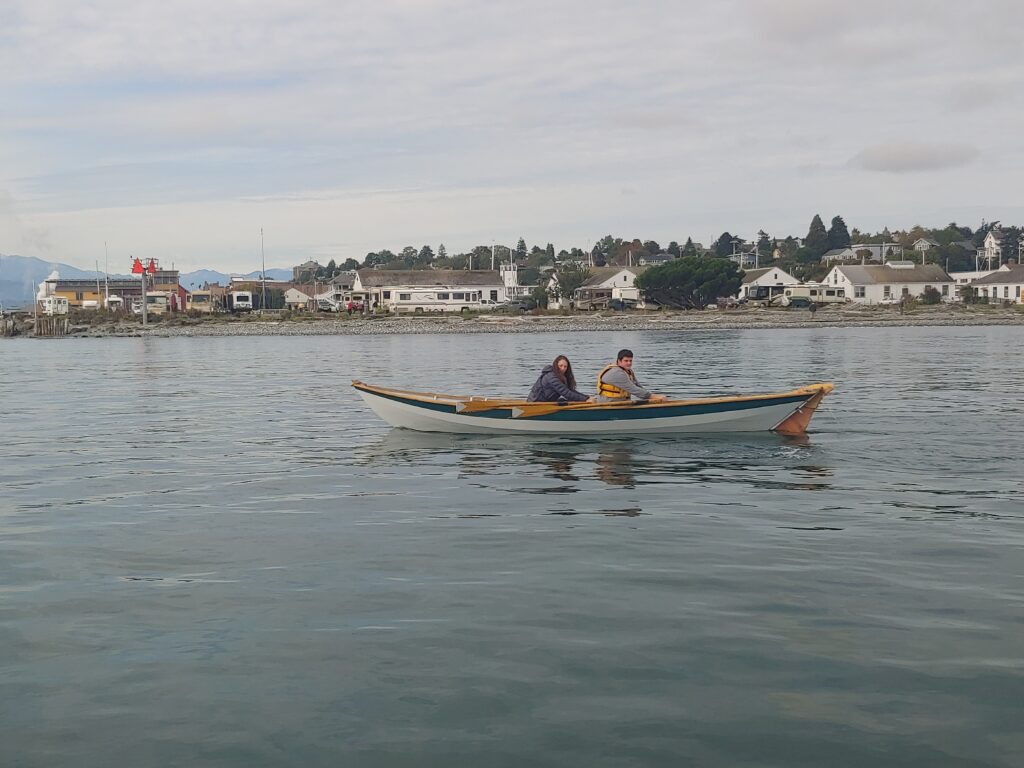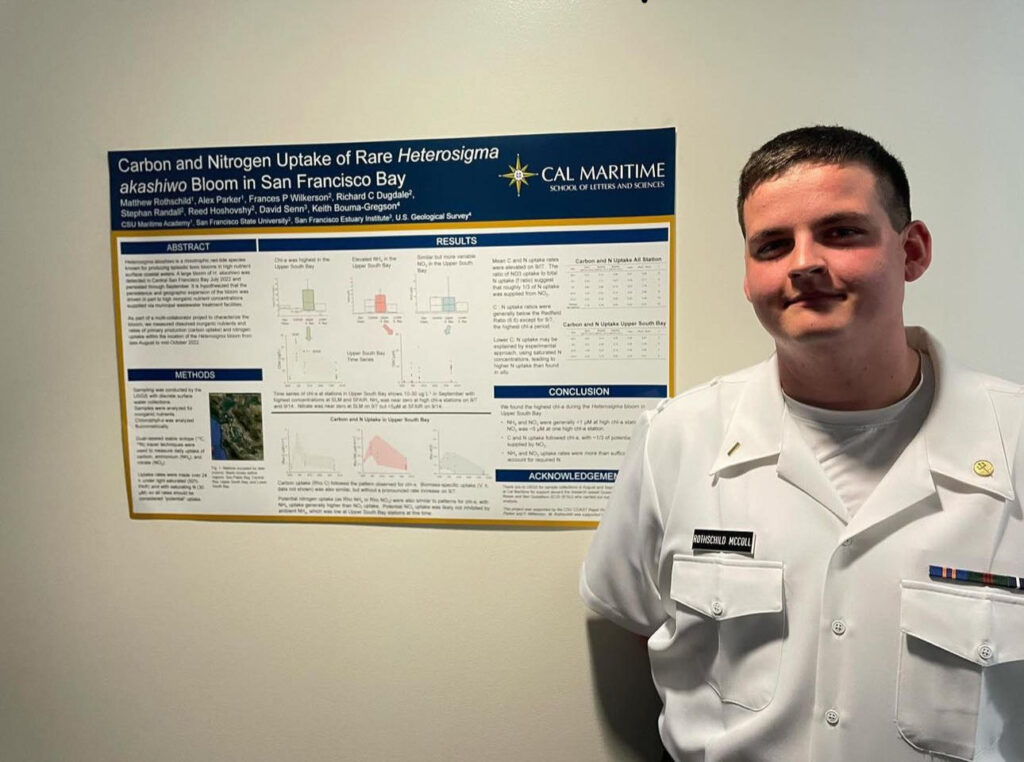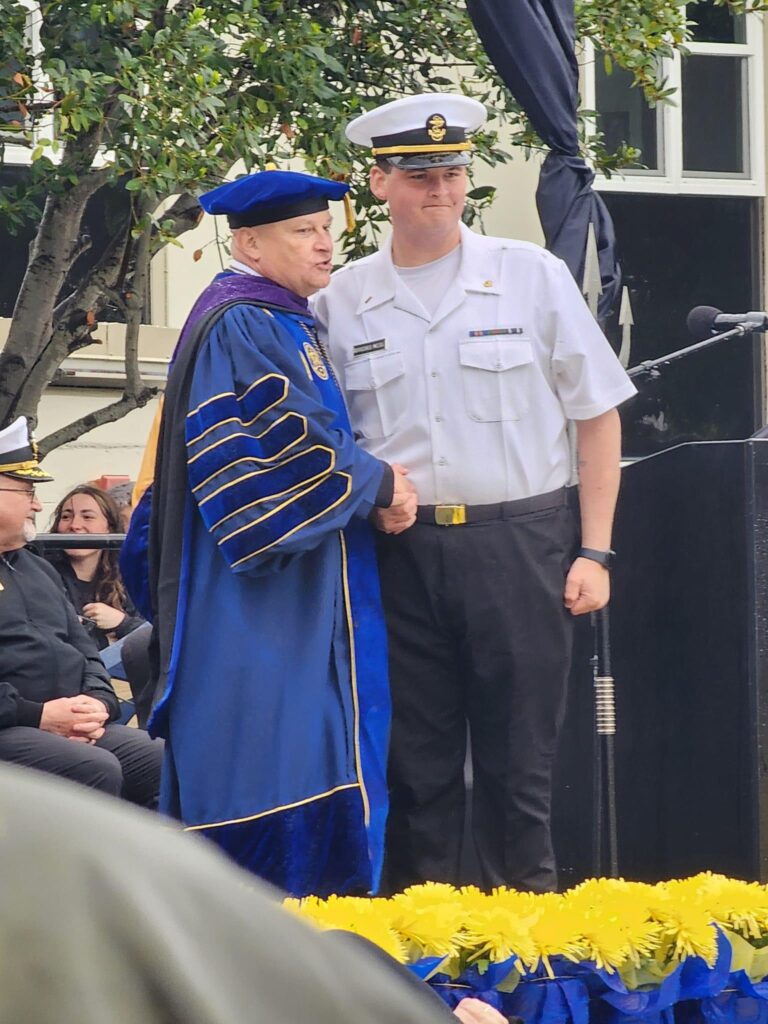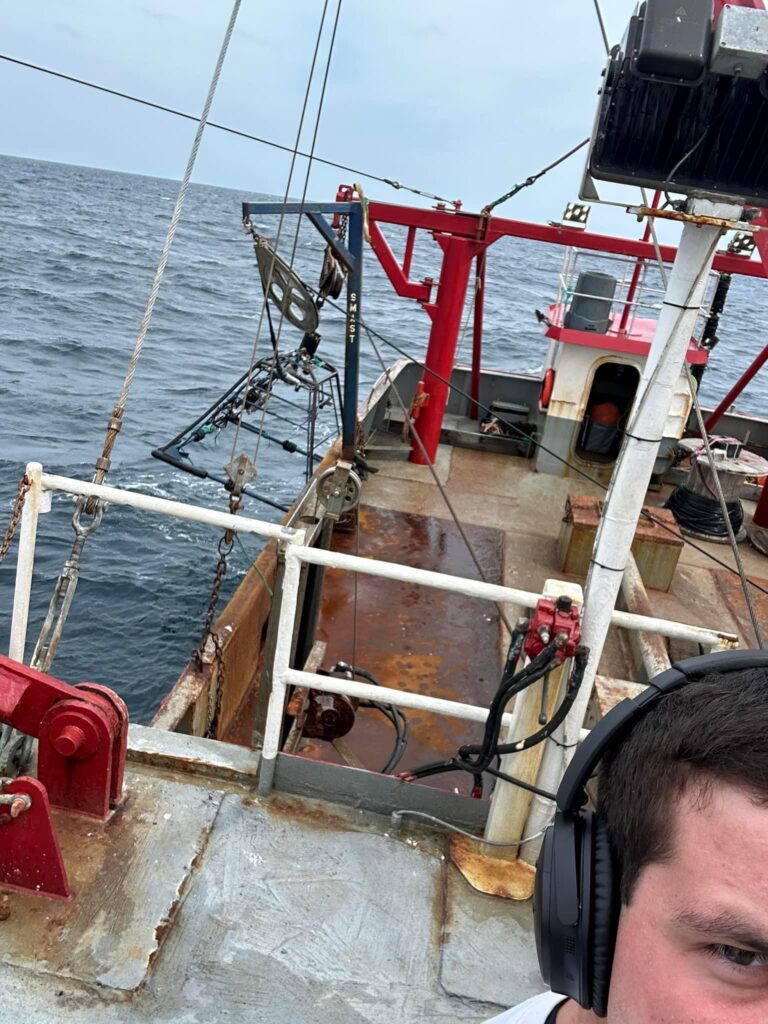By Mary Rothschild
Because Northwest Maritime has had so much to do with the young man Matt is today, I wanted to update you on where he has landed.
After graduating in May from Cal Maritime, he came home to Port Townsend—jobless. He knew that opting for a degree in Oceanography (he was in the inaugural class for that major), rather than vessel operations or engineering, probably meant he would have to get an advanced degree. He didn’t have the funds for graduate school. But Matt’s goal has always been to be an ocean scientist—albeit one who also knows how to drive the boat, crew, and stand watch.
He was lucky enough to get a summer job in Port Townsend with the Washington Department of Fish & Wildlife as a “scientific technician”—a crab-catch checker. He says it was a valuable experience interacting with strangers on the docks. Some cooperative, friendly people understood that regulations can help sustain the fishery. Others let him know their view of government was decidedly negative. It was a good lesson in the conflicts inherent in our use of the oceans.
Then he got the call that prompted him to load up everything he owned to drive across the country to New Bedford, Massachusetts. He’s now part of a team at UMass/Dartmouth School for Marine Science and Technology, or SMAST, working on reviving and sustaining the sea scallop fishery, as well as studying the impacts of offshore wind turbines on scallops and other sea life.
They use underwater cameras dropped from fishing boats for their work. The vessel owners are reimbursed for taking the researchers out, an incentive that helps eliminate adversarial relationships. Matt was at sea within three days of reporting to work, and estimates about 50 percent of his job will be on the water. The other half will be data analysis in the lab.
He reports that the lab atmosphere is fast-paced and collaborative, and that hailing from Port Townsend carries a certain cachet. People have heard about us (the Race to Alaska!) and want to learn more. Meanwhile, after growing up in our small town in the Pacific Northwest, he’s adjusting to the more urban East Coast culture. He found a very cool, top-floor apartment in a 100-year-old white clapboard building within bicycling distance to the lab. It’s a neighborhood that looks like something out of Moby Dick, but these vintage “three deckers” were built for textile-factory workers, not whalers. By the way, rent prices in rapidly gentrifying New Bedford approach those in Port Townsend
Being a research assistant is not exactly lucrative, but beyond the interesting, meaningful work there are good benefits and the opportunity to take free or discounted coursework toward a master’s degree and eventually a PhD, which is exactly what he hopes to achieve.
We’ve said it before, but we can’t say it enough. Matt got to this point with the help of so many supporters and mentors at Northwest Maritime—from learning boat handling, woodworking, and navigation skills at summer camps and his maritime classes in high school, to the confidence building of his internship job at Pygmy Kayak and being a deckhand on the Admiral Jack. His new bosses have told him his resume was impressive—and helped him stand out from hundreds of applicants.
Earlier this month, Matt turned 23. He texted us a photo of the sunrise over calm water on Georges Bank. He wrote: “Best birthday ever!”
Thanks to you all.
Help Northwest Maritime provide maritime education and career training opportunities for more young people like Matt, and inspire them to pursue their dreams of maritime futures.
